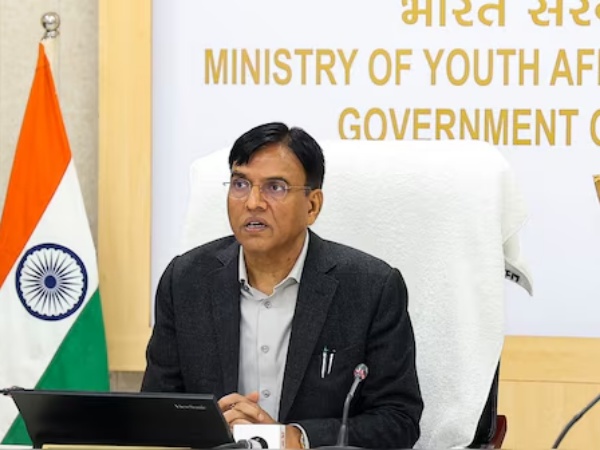views : 782
4 Min Read
Sports Ministry’s focus on age-fraud in Indian sports will succeed if implemented well
The Ministry of Youth Affairs and Sports has sought to modernise and update the National Code Against Age Fraud in Sports in a bid to reduce, if not eliminate, instances of age-fraud that has ravaged Indian sport over the years. The Ministry aims to create a dedicated centralised database, managed by the Sports Authority of India, to make things easy for the entire ecosystem.
There appears to be a sharper awareness in the Ministry’s corridors of how age-fraud not only gives the cheats an unfair advantage over deserving athletes and deprives them of opportunities and recognition but also entails risk of injury and resource misallocation. Thus far, the focus was only on the ethical part of violation.
The National Code Against Age Fraud in Sports, in place from April 1, 2010, did not lay down specific penalties beyond readjusting the guilty athletes in the appropriate age-group. That approach has been changed now with a uniform penalty framework recommending a two-year ban for the first violation and a life-ban for a subsequent violation.
In fact, it is just as well that coaches and officials of National Sports Federations who facilitate pr assist in concealing age fraud as well as Integrity/Compliance Officers who do not prevent or report age fraud are also liable for such penalties. The draft code, however, does not specify the mechanism by which coaches, NSF officials and Compliance Officers would be held accountable.
Besides, the revised draft envisages the incorporation of a whistleblower mechanism to report instances of age fraud. To prevent misuse of the mechanism and to discourage frivolous complaints, the Ministry has proposed that a prospective whistleblower pays Rs. 5000 as a fee for the complaint to be investigated. The fee would be fully refunded and Rs. 2000 paid as a reward.
The draft revision makes it mandatory for athletes to produce computer generated birth certificates issued by the prescribed authority under the Registration of Births and Death Act 1969, Aadhar Card or Automated Permanent Academic Account Registry ID or Voter ID or Driving Licence or PAN Card and a Matriculation Certificate by a recognised educational board.
For all that, the key to succeeding with this really will be the strict implementation of the provisions. Over the past decade and a half, it has been noticed that Sports Authority of India was itself reluctant to take any action against athletes fudging their age and competing in ranks they were ineligible to participate in. It was left to the NSFs to initiate action.
By a directive on November 25, 2009, the Ministry of Youth Affairs and Sports had instructed the Indian Olympic Association and NSFs that athletes should be banned for two years in the first detection and five years for a repeat offence if there is conclusive proof that age fraud had been committed. There is no known instance of an athlete being banned for two years since then.
Curiously, when the National Code Against Age Fraud in Sports was made operative from April 1 the following year, there was no reference to such penalties. Having spoken of Age Fraud in the same breath as doping – “Both amount to cheating,” the Ministry held in its Novemner 2009 letter – it removed all references to stringent penalties, including two-year bans.
It must be hoped, therefore, that the revised draft code will be implemented with sincerity after the public recommendations are taken into account before being published as NCAAFS 2025. Else, it will be seen as mere saber-rattling against one of the evils that has been afflicting Indian sport for several decades.
There must be additional penalties, including the withdrawal of titles and scholarships as well as the provision to seek refund of monies spent on an athlete towards age-group competition at the continental and global levels. The absence of such provisions allows athletes competing in ineligible age-groups and their benefactors to continue violating the rules with impunity.
There is no denying that age-fraud in sport has repercussions that extend beyond the field of play. In the past, some cheats have used certificates and rewards obtained with such deception to secure scholarships and admissions in colleges and university as well as employment. Those competing in their eligible age-groups were left licking wounds and regretting missed opportunities.
The Ministry of Youth Affairs and Sports has invited suggestions/comments on The Draft National Code against Age Fraud in Sports 2025 from all stakeholders, including general public, sports federations, athletes, coaches and sports administrators. The last date for submission of suggestions/comments is March 31, 2025.
